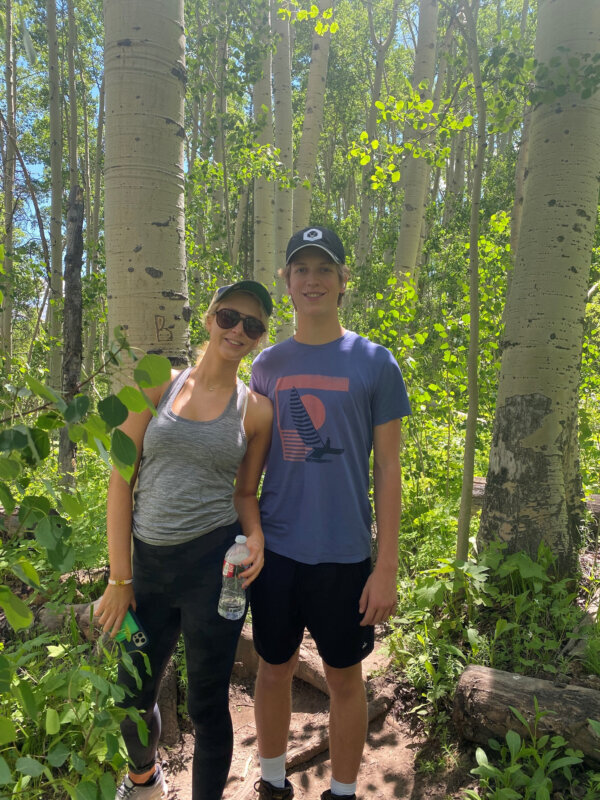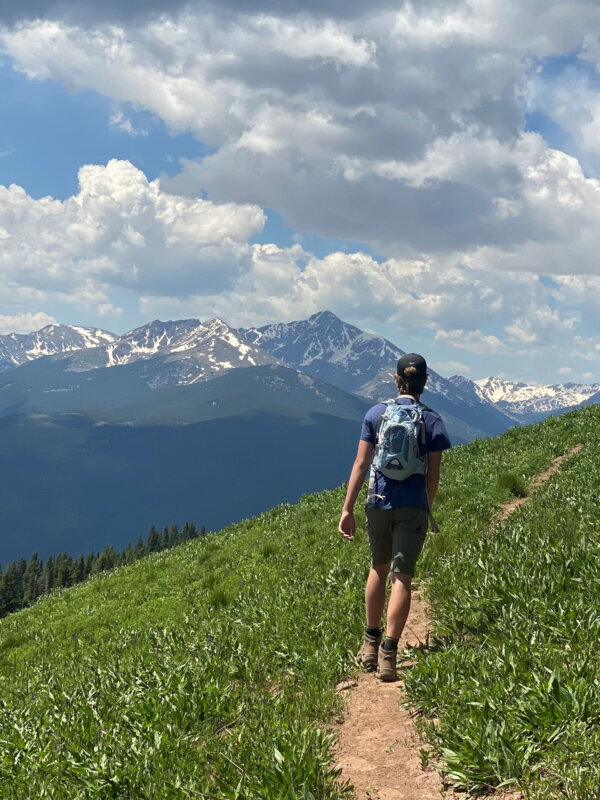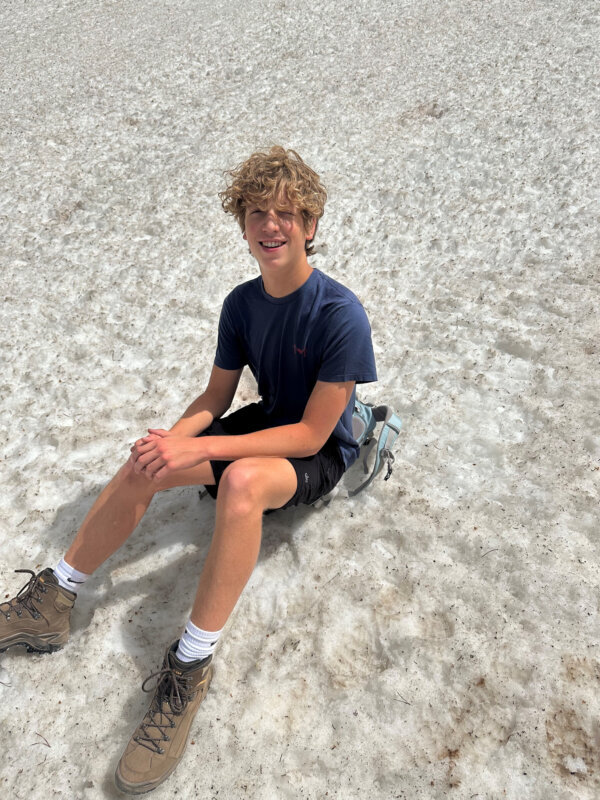This video is no longer available.
A D.C. teenager is beginning his climb up Africa’s famed Mount Kilimanjaro. He’s doing it for his sister, whose rare disease has left her with her own uphill climb since the day she was born.
Two days after her birth, 20-year-old Tia Piziali was diagnosed with a disease called phenylketonuria, more commonly known as PKU. Only a few thousand people have the disease, which prevents your body from digesting protein. It’s so rare that when Tia tested positive as a newborn, the doctor ordered a retest because most of the time, the positive tests are false-positives, said her mom, Alison Reynolds.
Piziali was one of the very few whose positive test result was the real thing. It led to dramatic changes in what she could eat.
“It’s with you for every day of your life,” Piziali said. “Growing up, I could only have six grams of protein a day, which you know, if you think about it, I think that a bowl of pasta has at least double that. So I was really limited to only fruits and vegetables every day.”
The rest of her diet was a special formula, at least until a new drug became available when she was 17 years old. Now she has to take a shot every day to eat food everyone else takes for granted, without worrying that the protein in her food will attack her brain.
“I would have severe migraines,” Piziali said. “I would have dizziness. I was at risk for having seizures. That never happened to me, luckily, but I’m lucky in that regard that it didn’t happen to me. Extreme brain fogginess. I mean, it can create ADHD symptoms. It can really affect people’s grades and mental health. It’s a lot.”
But because the disease is so rare, there’s not a lot of emphasis on it in the pharmaceutical world. That’s where Tia’s brother, 16-year-old Hudson Reynolds, is trying to help.

“I knew I wanted to do something for my sister,” said Reynolds, who is set to begin climbing Kilimanjaro on Friday. “She can’t participate in things that we all can, like Thanksgiving or birthdays. You know, she she’s been bullied at school for it. It’s been hard for her, definitely.”
Reynolds has been training for this for months. In the winter, it was carrying a heavy backpack on an inclined treadmill for hours at a time. In the summer, it’s been long hikes around the city. He’s also taken trips to Colorado to hike in thinner air.
“I am nervous,” said Alison Reynolds of her son’s venture. “I’ll say the biggest issue is altitude sickness. You know, he hasn’t been that high. He’s been training at high altitude in the last couple weeks. He did seven hikes above 10,000 to 11,000 feet when we were in Colorado. But going up to 20 is something very different.”
Alison is no stranger to raising funds for this disease herself, having cross country skied across Norway, where the disease was first discovered. She’s confident that a cure for the disease might be attainable in the coming decades, after watching her daughter go through so much.
“It degrades the gray and white matter in your brain. So those are like, the fast synapses, executive functioning, things like that,” Alison said. “So they’ve done studies where they show a child with PKU, a slice of the brain and basically an MRI of the brain next to a sibling without PKU from the same family and the brains are different.”
Tia is not just grateful, but also impressed by what her brother is doing.

“He says that the mental endurance you need to go up the Mount Kilimanjaro is similar to the mental endurance to stay on diet with PKU and stay healthy,” Piziali said. It’s an analogy she agrees with. “It’s crazy, because I tell him, I could never do what you’re doing, going up Mount Kilimanjaro, hiking, like, dozens of miles a day. And he tells me, ‘I could never do what you’re doing with PKU.’ So they’re different, but he thinks they’re very similar.”
Reynolds has talked to people who have climbed Kilimanjaro before, in an effort to get some insight about what to expect.
“It’s going to be pretty cold at the top of the mountain. It’s like three degrees Fahrenheit. So we’ve had to prepare for that. Packing-wise, also packing a lot of medicine and pills, you know, for altitude sickness, things like that,” Hudson said.
He can expect “a lot of early mornings,” too.
“The day we summit, we have to wake up at midnight to get up there on time,” Reynolds said. “And other days, we’re getting up at like 3 a.m.”

Friday is scheduled to be the first of six days he’ll need to climb up the mountain. It’ll take two days to climb back down.
Reynolds’ fundraiser is called climbforPKU and he’s trying to raise $200,000 to help fund the research for this disease. He’s not far from that goal.
“I’m extremely proud, extremely proud,” Alison said. “He’s very close with Tia; cares about her so much. But I hadn’t really realized how much watching their sister grew up with this rare disease had impacted the kids. You know, it became really clear to me that he’s been internalizing her struggle. And I think it’s a great outlet. I think it’s a great way to do something about that and to contribute to the PKU community, rare disease, fighting for a cure. I’m super proud of him.”








